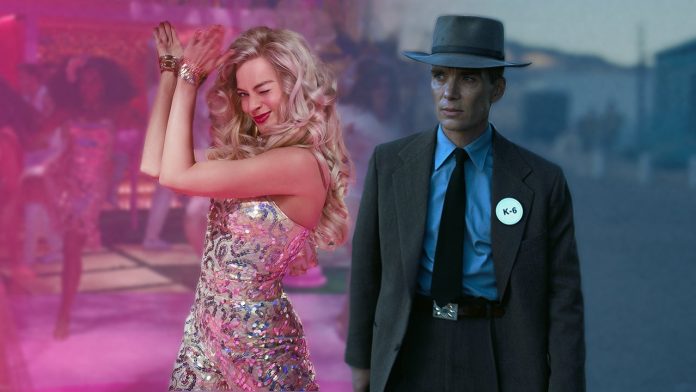Mary Finch
Barbie sold more than $1 billion worth of tickets worldwide just weeks after its release – and with good reason. It’s hilarious, touching and (albeit simplistically) very feminist. It starts in Barbieland, a place which is separate from, but connected to, the real world, and where Barbies run everything. A black woman is the president, women hold every other position of power, and they win every Nobel Prize.
An existential crisis forces Barbie (played by Margot Robbie) into the real world, where she encounters sexism for the first time.
Barbie was produced by one of the biggest studios in the world, with heavy involvement from Barbie manufacturer Mattel, one of the biggest and most successful corporations in the world. Obviously, it doesn’t offer a strategy for fighting women’s oppression, and even its exploration of the real-world impact of sexism is limited.
The film mainly focuses on the double standards forced on women: “You have to be thin, but you can’t say you want to be thin, you have to say you want to be healthy”. It doesn’t go far beyond this, but then again, perhaps it doesn’t need to. It’s Barbie – more than anything, it’s meant to be fun.
What Barbie does extremely well, though, is its exploration of women’s relationships with themselves. In Barbieland, every Barbie is effortlessly perfect – so Margot Robbie’s Barbie is horrified when she sees cellulite on her leg for the first time.
That scene captures the experience of a lot of women, who face overwhelming pressure to never show any signs of physical imperfection or, god forbid, ageing. The difference is that when Barbie goes to the real world, and sees an elderly, wrinkled woman – the ‘imperfection’ we’re supposed to desperately avoid – she tells her how beautiful she is. Probably very few women would feel able to say the same when faced with their own future selves.
Barbie is not just a film about women, though. Ultimately it’s about gender and how everyone suffers under a sexist system – which is where Ken (played by Ryan Gosling) comes in.
In a lighthearted and silly way, Barbie manages to point to how men suffer under sexism as well. Men need space to express their emotions, to have deep and meaningful relationships with each other, and to feel respected. Ken is missing all these things in Barbieland, and this feeling of powerlessness is part of what pushes him towards sexism.
In Barbieland, Kens are literally homeless (every house is Barbie’s dreamhouse), and they exist only as Barbie’s companions. Ryan Gosling’s Ken is desperately in love with Margot Robbie’s Barbie – technically, they’re boyfriend-girlfriend, but only because Mattel made them that way. They can’t escape the gendered roles which have been forced on them.
There are so many other miscellaneous things that come together to make Barbie a fantastic film. Ryan Gosling’s Ken stands head and shoulders above the rest of the cast, but there are also incredible performances from Will Ferrell as the president of Mattel, and Michael Cera as Allan (a discontinued doll labelled Ken’s “buddy”, who fits into all of his clothes.) There are several other jokes about discontinued Barbie and Ken dolls, such as ‘Magic Earring Ken’ and ‘Sugar Daddy Ken’, so called because he is the ‘daddy’ of a dog called Sugar.
If you want socialist analysis and a programme for women’s liberation, read the Socialist. If you want to see a weird, wonderful and (mostly) lighthearted film about women, go to see Barbie.
- Barbie, distributed by Warner Bros Pictures is in cinemas now
To read a review of the other big film of the summer: Oppenheimer – a skilful, poignant indictment of nuclear weapons, capitalism and imperialism







